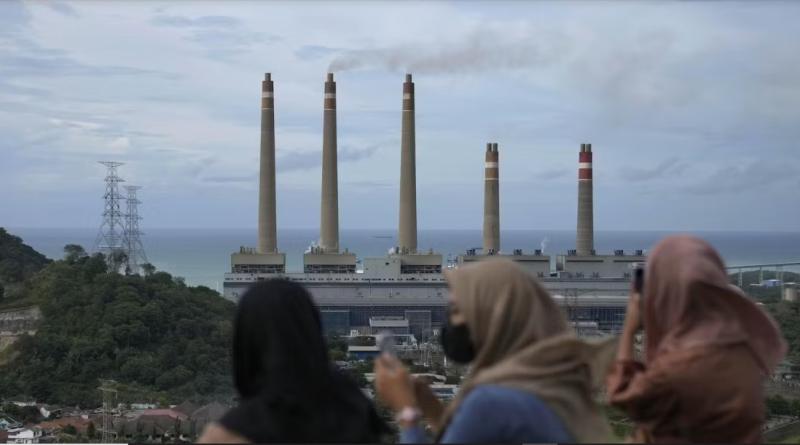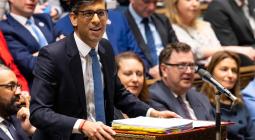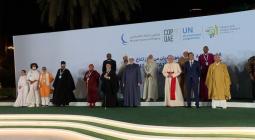Getting from climate pledges to climate action

Government agencies charged with devising effective policies to clean up our fossil-fuel-based economies often lack the resources and expertise to do so, underscoring the need for NGOs to provide them with critical data and technical know-how.
The Paris climate agreement, concluded in 2015, has been instrumental in rallying countries around the world to commit to reducing greenhouse-gas (GHG) emissions. But setting ambitious climate targets has not always resulted in meaningful action. The United Nations’ recent “global stocktake” report shows that we are falling short of the drastic cuts needed to achieve climate stability, underscoring the urgent need for governments to act swiftly and decisively to keep global warming within safe limits.
As former regulators, we are confident that developing effective solutions is still feasible. While four economic sectors – industry, transportation, electricity, and buildings – account for 75 per cent of global GHG emissions, well-designed public policies could effectively reduce pollution from these sectors, promote consumer savings, safeguard public health, and stimulate sustainable economic growth.
But crafting effective policies to transform our fossil-fuel-based economies in time to avert climate catastrophe and meet humanity’s energy needs is a daunting task. Tackling it head-on requires a combination of technical, economic, and political expertise, along with significant financial resources and labour, but the agencies charged with devising and implementing these critical policies are understaffed and underfunded. Too often, regulators have no choice but to rely on the information provided to them by the very industries they are charged with overseeing. This dynamic can result in weak regulation and missed policy objectives.
Crucially, independent NGOs can diminish this power imbalance by providing policymakers with the information and technical know-how they need to design robust regulations that reduce harmful emissions effectively.
The US Environmental Protection Agency’s efforts to reduce truck pollution are a case in point. In 2016, when the EPA was drafting rules to limit GHG emissions from heavy-duty vehicles, like commercial trucks, various industry bodies provided policymakers with contradictory data. The International Council on Clean Transportation (ICCT), an independent think tank, undertook its own comprehensive study, which included detailed cost projections for the proposed regulations.
The ICCT’s impartial analysis provided the EPA with data demonstrating the cost-effectiveness of a stringent pollution standard. Consequently, these regulations are expected to result in emission cuts equivalent to 294 coal plants, save truck owners US$170 billion in fuel costs, and prevent up to US$209 billion in damages over the next 30 years, positioning the United States as a world leader in truck efficiency.
Since then, the ICCT has assisted several governments in crafting regulations to improve commercial-truck efficiency. Using the organisation’s research, the European Commission drafted its first-ever rule targeting pollution from commercial trucks, which is projected to reduce truck emissions by 150 million tonnes by 2035.
Specialised NGOs can also assist emerging economies, particularly those with fewer resources, in kickstarting transformative climate programs. By facilitating the rapid adoption of clean-energy solutions, such organisations can increase access to affordable, pollution-free electricity. Moreover, rules that promote the use of cutting-edge technologies can foster innovation, enhance competitiveness, and help countries position themselves as climate leaders, benefiting their people and the planet.
In 2006, for example, India launched a nationwide appliance-efficiency program. Through a dedicated division of the Bureau of Energy Efficiency (BEE), officials collaborated with NGOs such as CLASP (formerly known as the Collaborative Labeling and Appliance Standards Program) to adapt key features from successful efficiency-labeling programs to the Indian market. CLASP’s in-depth analysis also helped the BEE identify which appliances it should focus on.
These insights enabled the BEE to launch its star labelling program rapidly. The agency then collaborated with another NGO, The Energy and Resources Institute, to develop an efficiency program tailored for small businesses. By facilitating cooperation with business leaders, TERI played a pivotal role in creating robust and cost-effective efficiency rules.
Since its launch, India’s appliance-labelling program has offset 400 million tonnes of GHG emissions – roughly equivalent to the annual emissions from India’s transportation sector – and is projected to account for 30 per cent of the country’s emissions reduction by 2030. In addition, India has established itself as a leading manufacturer of energy-efficient air conditioners, owing to the growing demand for sustainable cooling solutions amid rising global temperatures. With efficiency programs cutting corporate emissions by 105 million tonnes annually, Indian industry now ranks among the world’s most energy-efficient.
Although such activities rarely attract significant attention, unbiased research provides regulators with the data they need to devise transparent and effective environmental policies. Technical assistance from independent NGOs can lay the groundwork for the policy successes needed to overcome the climate crisis.
As developing and developed economies enhance their state capacities, they will grow more confident in setting ambitious targets, creating a virtuous cycle. Given the right support, we can ensure that the world’s next climate-action report card features grades that make future generations proud.
Christopher Grundler, Senior Adviser to the Crux Alliance, served at the US Environmental Protection Agency for more than 40 years, leading the Office of Transportation and Air Quality from 2012-19. Ajay Mathur, a former director general of the Indian Bureau of Energy Efficiency, is Director General of the International Solar Alliance.





